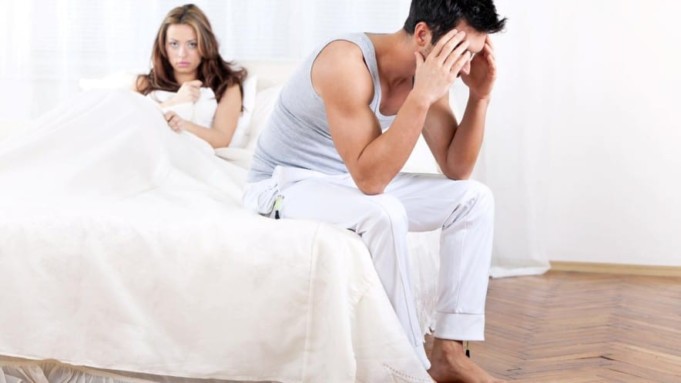In the body, testosterone plays an important role in male growth and development, and helps maintain lean muscle mass and muscle strength. But as men age, their testosterone levels naturally decrease.
However, ongoing research has discovered a number of factors including injury, infections, obesity, certain medications or inflammatory diseases that can increase a man’s risk of developing hypogonadism (low testosterone) earlier than expected.1
There are two main forms of hypogonadism which causes testicles to produce low concentrations of testosterone. Primary hypogonadism is typically diagnosed earlier in life and is cause by a problem with the testicles often occurring during child development or before puberty. Secondary hypogonadism points to an issue in sections of the brain, which typically signal the testicles to produce testosterone.1
Low testosterone can have a significant impact on all aspects of a man’s life. But generally, there are three areas that hypogonadism can seriously effect. Below we explore three major side effects of low testosterone and how natural supplements may offer a possible solution.
Decreased Sex Drive
As the male sex hormone, testosterone plays a large role in male libido and virility. Low testosterone levels can have a significant impact on desire, sex drive, and performance.
Poor or infrequent erections is another sign of low testosterone levels, but may also be caused by a number of underlying health issues. Fertility can also be impacted.1,2 All of these changes can also lead to psychological side effects such as feelings of anxiety or reduced self-esteem.
Changes in Physical Appearance
Hypogonadism can affect several processes within the body, but these changes can also drastically change men’s physical appearance. Testosterone is responsible for many male traits such as facial hair, muscle distribution and tone of voice.1,2
In adult males, a lack of testosterone can result in reduced lean muscle mass, hair growth, calcium stores and bone mass, which can increase the risk of osteoporosis. Further, increases in in breast tissue and body fat often occur.1,2
Risk of Depression
Along with physical changes, hypogonadism can lead to psychological and emotional changes.1,2 In a recent study, scientists found that men with borderline testosterone levels had increasingly higher rates of depression and antidepressant use than the general population.
They also were noted to have high rates of obesity, erectile dysfunction and disrupted sleep.3 Other common mental or emotional symptoms of low testosterone include difficulty concentrating, increased fatigue and increased risk of anemia (low iron levels).1,2 While anemia can further feelings of tiredness and muscle weakness, all of these factors have serious effects on performance both in and outside of the gym.
The Good News
In recent years, a number of studies have researched the effects of low testosterone and possible treatments. As well, a number of natural products have become widely available as alternatives to expensive testosterone replacement therapy. Today, many men are beginning to turn to natural testosterone support supplements that provide notable results.
While several natural products have come highly-recommended, DSN Code Black is one of the latest natural testosterone supplements that has created a buzz across the health and wellness industry. This supplement features no stimulants and only contains ingredients that have previously been used to support testosterone production.
Users considering taking natural testosterone supplements should look for high-quality and well-studied ingredients such as tribulus terrestris, horny goat weed, and zinc.
While the road to increasing testosterone levels naturally may be unique for each man, using high quality supplements should be a part of a well-rounded approach which includes dietary changes, resistance training and possible lifestyle changes.
References:
- Mayo Clinic. (n.d.). Male hypogondisam. Retrieved July 11, 2017 from http://www.mayoclinic.org/diseases-conditions/male-hypogonadism/symptoms-causes/dxc-20248457
- The Official Foundation of the American Urological Association. (2017). What is low testosterone (Hypogonadism)? Retrieved July 11, 2017 from http://www.urologyhealth.org/urologic-conditions/low-testosterone-(hypogonadism)
- Westley, C. J., Amdur, R. L., & Irwig, M. S. (2015). High Rates of Depression and Depressive Symptoms among Men Referred for Borderline Testosterone Levels.The Journal of Sexual Medicine, 12(8), 1753-1760. DOI: http://dx.doi.org/10.1111/jsm.12937












